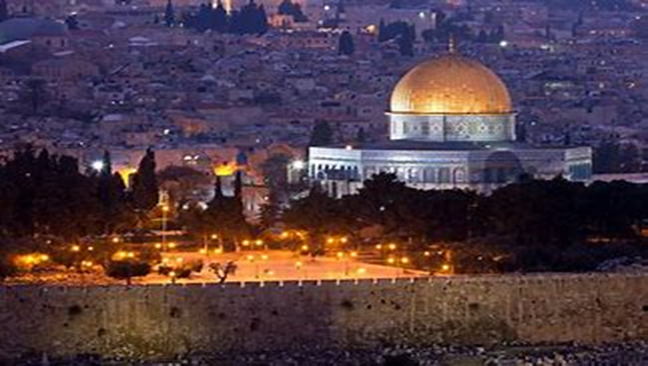Itamar Ben-Gvir who currently holds the position of minister of national security in Israel, paid a visit to the Al-Aqsa compound on the morning of 21st May and strongly asserted that Israel is “in charge” of the Temple Mount structure which has invited harsh criticisms from the international community. This is seen as a blatant provocation by the Palestinians who fear that Israel might take over the shared holy site in its jurisdiction.

Figure 1 Image source: Reuters
Background of the controversial visit
Israel has always grabbed the attention of the world for some or other reason, for most of the time, it occupies headlines for controversial events or remarks. This stands true for today’s visit as well. The declaration by the security minister comes amidst mounting tensions between Jews and Palestinians since Jerusalem Day celebrations which fall on 18th May.

Figure 2 Image source: Architectural Digest
This day is boldly enshrined in the history of Israel as it marks the day of the occupation of East Jerusalem during the June War of 1967 between Arabs and Israelis. This occupation is significant because East Jerusalem is the seat of the holiest site for Jews since time immemorial. It is the site of two holy Temples that were destructed by the Babylonians in 586 B.C.E. and by the Romans in 70 C.E. It is believed that the third Temple would be erected there in the Messianic era.
This city holds immense importance for Muslims as well because, for them, it is the third holiest place after Mecca and Medina. Temple Mount is the structure that is the bone of contention between Jews and Muslims. This pithy introduction to the inextricable history allows us to comprehend contemporary knotty issues.
The stalemate over the old city has time and again led to violence. In 2021, Hamas, a militant organization that controls Gaza, fired rockets during the flag march which culminated in an 11-day war-torn situation between Israel and Hamas. Recently more than a week ago, Israelis and militants from Gaza clashed with each other. Given the conflictual situation, Egypt had tried to spearhead a truce between both the warring parties before the Nationalist march. But the events of Ben Gvir’s visit to East Jerusalem emasculates any sort of attempt to thaw the rivalry, rather it accentuates the impasse.
The Reaction of the International Community
Palestinians were chagrined at this deliberately instigated tour of the Israeli far-right minister. A spokesman for Palestinian President Mahmoud Abbas said that this visit is outrightly an incursion just like a thief into the premises of Al-Aqsa mosque but this cannot subvert the status quo in place and it will not lead to Israeli sovereignty over the compound.
A Hamas spokesperson said that Israel would have to bear the repercussions of this “savage assault” and urged Palestinians to muster efforts to prevent the Judaization of the area.
Palestinians expressed their discontent over the violation of the rule which prohibits Jews from praying at the Temple Mount. For centuries, Jews had been forbidden to even visit the Temple Mount but since agreement after the 1967 war, Jews have been allowed to visit the site and pray at Western Wall.
Jordan also criticized Ben-Gvir’s actions as a “provocative step” and a “dangerous and unacceptable escalation”. Saudi Arabia’s foreign ministry issued a statement condemning Israeli actions as a breach of international norms.
Apart from West Asian countries, the USA also expressed concern at Ben-Gvir’s visit.
Both groups have a soft corner for Jerusalem due to religious reasons. Israel as well as Palestine both consider Jerusalem as sacred. For Israel, Jerusalem is its undivided capital but Palestinians seek Jerusalem which is presently under the command of Israel












